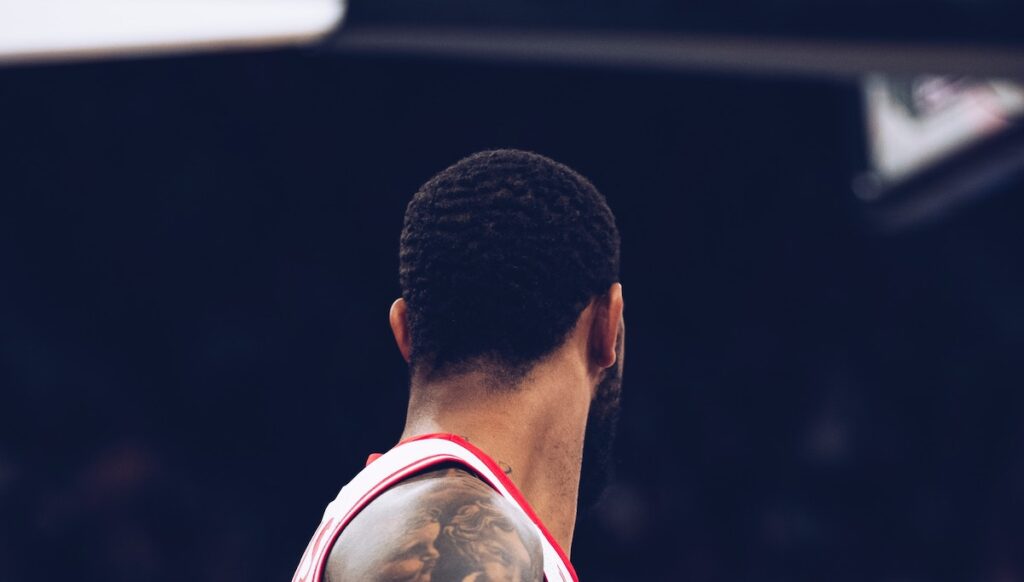If you’ve been following problem gambling news, then you are aware of the scandals that the NFL and NCAA have being going through in regards to players violating sports betting policies. It’s getting worse with each passing year since the US Supreme Court lifted the federal ban on the activity in 2018. This has led the public and programs/organizations to ask – should athletes be allowed to gamble?
There are policies already in place to restrict player sports betting.at a collegiate and professional level, and each carries varying rules regarding punishment and reinstatement. ESPN has done an excellent job in breaking down each league policy right here. However, there is no blanketed policy to state that athletes can’t gamble at all. For example, MLB/NBA/NHL players can bet on other sports/leagues that they aren’t under contract in. The NCAA is much more strict, as anyone involved with NCAA athletics is prohibited from engaging in any form of sports betting whatsoever. There is no rule however, to prevent college players from casino gambling as long as they are of legal age in a legal jurisdiction.
While there are outright blatant violations, such as with ISU’s defensive lineman Isaiah Lee who bet against his own team in a game he was playing in, America can’t help but wonder if an all-encompassing anti-gambling policy could be the answer. Of course, the immediate criticism to this may draw upon infringement of rights and freedoms. However, remember that leagues already have strict policies in place that ban athletes from a wide variety of activities. For instance, standard NBA contracts specifically prohibit participation in boxing, professional wrestling, motorcycling, moped-riding, auto-racing, sky-diving and hang-gliding. It was reported that upon entering the NFL, quarterback Marcus Mariota delayed contract signing with the Tennessee Titans due to a clause demanding that the Hawaiian stop surfing. These prohibitions are in place to protect a player’s health, and their team’s investment in them. Cannot the same be said about gambling?
Below is a breakdown of why policies to ban athlete gambling altogether may be worth considering, and what else needs to be done.
Why an Outright Ban on Collegiate and Professional Athlete Gambling May be Required to Mitigate the Instances of Policy Violations and/or Problem Gambling
Existing Policies May Not be Clear
Existing policies leave room for interpretation and subsequently make it easy for a player to violate policy without initial knowledge of doing so.
At the end of 2022, Virginia Tech linebacker Alan Tisdale was suspended for making a single wager on the 2022 NBA Finals. The 21 year old used the FanDuel app to make the wager, which is fully permitted in Virginia. Tisdale is a shining example among student athletes who at the time was on track to make the VT Dean’s List. When he realized after-the-fact that he may have violated the NCAA rulebook on sports betting, he self-reported the wager that netted him just $41. Meanwhile, a recent wave of off-season NFL suspensions have occurred not because players bet on the NFL, but because they placed bets on other leagues online while at team or league facilities. If they walked across the street to place their online wagers, they would not have been suspended. It’s easy to infer that players may not be fully aware of what loose-fitting policies do or do not entail.
Online Gambling Makes it Easy to Subvert Sport/League Bans
Professional leagues allow players to make online sports bets on other leagues, generally if off-premises. The problem, is that online sports betting makes it all-too-easy to violate policy. An NFL player making an online wager on an NBA game may be tempted to add an NFL game wager to his betting ticket, especially when the online betting platform offers a lucrative multi-sport parlay. Are there really enough checks and balances in place to monitor this activity?
Gambling Debt Makes Athletes Vulnerable to Predators
Debt is a primary consequence of any kind of gambling. One NFL player reportedly lost $8 million to gambling just last year. When players get into debt from gambling activities that are not covered by policy (other sports and casino gaming) they may not only be tempted to gamble more (including wagers on their own league) to recoup losses, they become vulnerable to predators who may lean upon them to fix games. These predators come from of organized crime, and the concern about this is not being exaggerated.
Michael Franzese, an American former mobster who was the head of the Colombo crime family, describes exactly how he worked with bookies to force in-debt athlete gamblers to shave points:
Current Policies Do Nothing to Address Gambling Disorder
Research has shown that elite athletes are more vulnerable to gambling disorder than the general population. Banning some types of betting to protect the integrity of a league may help achieve that goal, but it does not address the underlying problem of problematic gambling behavior of athletes. In fact, it could be argued that allowing other forms of betting makes leagues complicit once they have the information about athlete vulnerability. While hyperbolic, consider this – would a treatment facility for alcohol use disorder ban vodka but allow visitors to bring in craft beer?
Why It’s Still Not Enough
Whatever leagues and programs do or don’t do is beside the point. Even if an outright ban put a dent in problematic gambling, a number of violations will persist despite the consequences. Some may even argue that stricter rules could backfire and increase instances of policy violations. Ultimately, any move to tighten gambling policies must coincide with increased investment in problem gambling education and mental health support. Only then can programs and leagues cover all bases.
Concerned Athletic Organizations and Institutions
CALL +1 (877) 426-4258
OR



